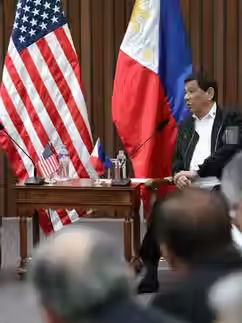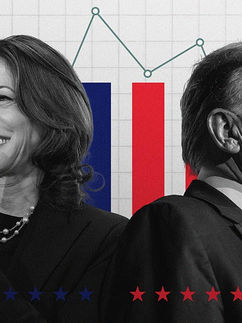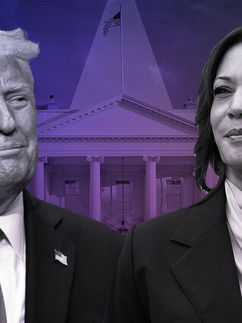The African Union's condemnation of military coups

Isha Desai
The African Union (AU) has suspended several countries after being affected by subsequent coups in the last two years. The union chose to suspend Mali, Guinea, Sudan, and Burkina Faso from participating in all activities as an incentive for restoring a civilian democratic rule. However, the AU has chosen to prioritise the recent suspensions instead of underlying structural issues such as Israel’s role in the union and the Ethiopian conflict.
The Suspensions
Mali
Mali was under a transitional government following a coup d’état in August 2020 when President Bah Ndaw and Prime Minister Moctar Ouane were arrested on May 24th, 2021, by the military, known as the National Committee for the Salvation of the People (CNSP). The coup was sparked by a cabinet shuffle on May 14th, 2021, where the military was informed by the media that their Minister for Defence and Minister of Security and Civil Protection had been removed. Within an hour of the announcement, Ndaw and Ouane were arrested and taken to a military camp in Kati. The AU suspended Mali on June 1st 2021, urging that the military ‘refrain from further interference in the political processes.’
Guinea
On the 5th of September 2021, Colonel Mamady Doumbouya led the overthrow of Guinean President Alpha Condé over his erosion of democracy and his autocratic behaviours. Notably, President Condé altered the Guinean Constitution to allow him to run for a third term, a catalyst for public outcries and the 2019-2020 Guinean protests. Doumbouya claimed that ‘the duty of the solider is to save the country’ as the National Committee for Reconciliation and Development announced that Condé’s altered constitution had been dissolved to allow for a more inclusive one. The AU condemned the coup and swiftly suspended Guinea from the union by September 10th, 2021.
Sudan
Democracy in Sudan is at risk after General Abdel Fattah al-Burhan overthrew the transitional government in a military coup on the 25th of October 2021. Prime Minister Abdalla Hamdok was detained along with other ministers over their stance against the coup. Citizens expressed civil resistance against the military and Prime Minister Hamdock was reinstated a month later before ultimately resigning on the 2nd of January 2022 over the conflict and fragility of the nation. The AU suspended Sudan on the 27th of October 2021 until the transitional authorities were restored, a prospect that seems unlikely in the near future.
Burkina Faso
President Roch Kabore was overthrown in a military coup on January 24th 2022, for lack of action against growing Islamic and Al-Qaeda groups in Burkina Faso. Despite citizen-led celebrations for the removal of their leader, Burkina Faso was suspended from the Economic Community of West African States (ECOWAS) and the African Union (AU) on January 28th and 31st, respectively, until constitutional order was restored. The coup was undertaken by the Patriotic Movement for Safeguard and Restoration (MPSR), led by Paul-Henry Sandaogo Damiba who released an initial charter for the country and declared himself the transitional President of Burkina Faso. After the coup, the MPSR ultimately reinstated the constitution but nullified the clauses contradicting the new charter.
Stability in the Region
The union’s future stability is at risk as it has not been able to adequately address underlying issues within the AU due to its focus on various coups. Issues unaddressed by the AU include Israel’s role as an observer, the ongoing conflict in Ethiopia and their inconsistency in their standard procedures after refusing to act on the 2021 Northern Chad offensive.
The suspensions have also had wider effects on stability in the region as discussions on whether Israel should remain in its role as observer to the bloc have continued to be a point of contention. AU Commission Chairperson Moussa Faki believes that Israel’s role can be ‘an instrument of peace’ whilst the Palestinian Prime Minister Mohammed Shtayyeh encouraged the AU to remove Israel, stating that they should ‘never be rewarded for its violation and for the apartheid regime’ towards the Palestinian people. Ultimately, the discussions were paused to avoid further state tensions following the series of suspensions.
The AU held its annual summit in Ethiopia this February, a decision that sparked further controversy over the AU’s neglect of Ethiopia’s 15-month war against fighters from the Tigray region. The nation was unsuccessful in maintaining a seat on the Peace and Security Council and African advocacy director at Humans Rights Watch, Carine Kaneza Nantulya, expressed that the AU should not ignore crimes committed in Ethiopia, including those by the Federal Government.
Furthermore, the AU has been criticised for its inconsistency after failing to suspend Chad when the Transitional Military Council (TMC) took over the government after the President’s death. The union’s Peace and Security Council (PSC) endorsed the military’s plan to establish civilian rule in 18 months which ultimately contradicted its responses to other coups in African nations.
Thus, the series of coups across the continents not only eroded the strength of the AU through the suspension of countries but also hindered their ability to address overdue internal structural issues and to focus on other key areas in the region.
Isha Desai is studying Politics & International Relations/Political Economy at the University of Sydney. She is particularly interested in the analysis and implementation of public policy and foreign policy.

















Comments